Make sure you’re protected this summer with the best vegan sunscreen. Planning a trip somewhere hot like Athens or the Canary Islands? Or, are you planning a trip where you’ll spend a lot of time poolside (find my list of the best vegan hotels worldwide here)? You’ll definitely need good vegan suncream!
Some of the vegan sunscreens I’ll be reviewing include:
Best sunscreens for those in the UK:
I didn’t realise how complicated sunscreen is until writing this article while researching sunscreens for a trip to the Canary Islands. Between chemical and mineral sunscreen, reef- and ocean-friendly options, deciding on an SPF, deciphering UVA and UVB and ensuring products are vegan, choosing the best vegan and best cruelty free sunscreen is complex. What’s the simplest solution for vegan suncare?
Wear sun protective clothing, a hat and seek shade.
However, this isn’t always practical, so if you’re planning a holiday or to participate in a summer sport, here’s how to protect yourself, in a cruelty-free way. Below I’ve reviewed the best vegan SPF.
Menu
1. What is vegan sunscreen? What makes sunscreen vegan?
2. What’s eco friendly sunscreen?
3. Learning the lingo: the meaning of UVA, UVB, chemical vs physical sunscreen and more
4. The Best Vegan Face Sunscreen
4a. Purito SPF30
4d. Dr Dennis Gross All-Physical Lightweight SPF30
4. The Best Vegan Body Sunscreen
4b. Green People Sunscreen SPF 15
4c. Stream2Sea SPF 30 tinted + untinted
4e. Alba Sport Sunscreen SPF 45
4f. Jason Family Sunblock SPF 45
4g. Avalon Organics Vegan Moisturizer with SPF 10
4h. Kiss My Face Sunblock SPF 30
4i. Odylique Sunscreen SPF 30
4j. Bare Republic Mineral SPF 30 Face Sunscreen Lotion
4k. Josie Maran Argan Daily Moisturizer
The Best Vegan Sunscreen for Your Face
Now that you know all about what to look for in vegan sun protection, here’s how to find the best vegan, cruelty free sunscreen for you. Make sure you’re protected with a vegan SPF with these sunscreens.
One thing that disappointed me about vegan sunscreen brands in my research is that while most of them avoid the biggest offenders in terms of ingredients that have been shown to damage coral reefs, many of them still contain other ingredients that the Environmental Working Group warns may damage reefs.
And many brands that are extremely reef safe and zero waste aren’t vegan (often because they’ve added beeswax). Hopefully, this will change. I later read it’s an industry wide problem, with ingredients that are banned in marine reserves being used in over 90% of sunscreens (you’ll find a list of such ingredients here). You’ll need to decide which is the best cruelty free vegan sunscreen for you and your needs and budget, balancing everything.
On the other hand, research is still ongoing and it’s not entirely clear which, if any, sunscreen ingredients damage reefs. Some claim it’s only oxybenzone and octinoxate that harm reefs (and some states have banned these), others say to avoid any chemical sunscreens and use only physical barriers (zinc oxide and titanium oxide), while others say there’s not enough evidence to show any sunscreens damage reefs.
Personally, I try avoid oxybenzone and octinoxate entirely and try to use physical sunscreens when going in the sea or another natural body of water (but don’t mind using oxybenzone/octinoxate-free chemical sunscreens in the city for day-to-day use). From experience I can’t use a physical sunscreen over SPF25 without getting a white cast on my skin though.
And it’s pretty much impossible to find fully physical sunscreens that don’t leave a white cast or flashback on darker skin tones (some brands offer tinted sunscreens, but often not a full range of colors) – so my advice is just to use whatever works for your skin. The best sunscreen is the sunscreen you use!
In my physical and mineral sunscreens reviews below, I’ve tried to outline the pros and cons of each cruelty free sun cream so you can decide which organic vegan sunscreen is for you. Each has pluses and minuses; unfortunately I didn’t find one perfect vegan sunscreen for face or body just yet.
Below I’ve outlined some of the best vegan cruelty free face sunscreen options, including vegan tinted sunscreen and untinted options, while further down the page you can find my picks of the best vegan body sunscreens.
Face sunscreen tends to be lighter weight and non-comedogenic (doesn’t clog pores) vs body sunscreen which is heavier. But you can absolutely use body sunscreen on your face if your skin isn’t sensitive or acne-prone, or just if you’re in a bind (any sunscreen is better than none).
The Dennis Gross spray was a popular vegan SPF 50 moisturizer, but it was discontinued. This new product comes highly recommended as a good mineral sunscreen for darker skin tones that doesn’t leave much of a white cast (check out Mixed Makeup’s review here).
It’s vegan, reef safe (it uses zinc oxide) and full spectrum. It’s also oil-free as well as reef-safe. It provides a physical barrier (non-nano zinc oxide) to prevent sun damage. Zinc oxide provides broad-spectrum protection, unlike titanium dioxide, the other physical sunscreen ingredient.
This sunscreen also provides water resistance and sweat resistance.
If you have darker skin, it may still leave a white cast – instead I recommend Black Girl Sunscreen SPF 30.
Pros: reef safe, water-resistant, some reviewers say it leaves less of a white cast than other physical sunscreens
Cons: expensive, may still leave a white cast
This is one of the best vegan sunscreens for darker skin tones as it’s been formulated by women of color, for people of color, to ensure it doesn’t leave a white cast at all.
It is a chemical suncreen, but it doesn’t contain oxybenzone or octinoxate (the SPF ingredients most commonly implicated in reef destruction and banned in Hawaii).
It’s also paraben free, fragrance free and moisturizing, as well as broad spectrum.
Pro: no white cast, fragrance free, free from parabens and oxybenzone
Cons: on the more expensive side
This sunscreen is designed to be super lightweight, with a gel-like formula that provides protection from UV radiation to even those who hate the feel of sunscreen.
It’s completely free of animal-derived ingredients and is also transparent, so suitable for all skin tones.
It offers broad spectrum protection against sun exposure using chemical barriers. It’s free of oxybenzone and octinoxate (which are implicated by some in destroying reefs and are banned ingredients in Hawaii) but it still uses other chemical sunscreen ingredients, which some say still may harm reefs.
Pros: clear, lightweight, free from oxybenzone/octinoxate, non-comedogenic
Cons: expensive, some don’t like the gel-like feel
This chemical sunscreen is free from non-vegan ingredients and is cruelty-free. It’s designed to be completely invisible, as well as lightweight and unscented.
For this reason, it has a lot of devotees and a lot of hype!
It’s a chemical sunscreen, but it is free from oxybenzone and octinoxate.
Pros: invisible, lightweight, scent-free
Cons: expensive
This suncreen is refillable, which I love as a concept!
It’s a chemical sunscreen and it’s invisible (no white cast or flashback), plus it’s non-comedogenic.
Pros: refillable, non-comedogenic, invisible
Cons: not necessarily easy to get refills
The Bare Republic mineral lotion SPF 30 is a good sunscreen for your face. Cruelty free and vegan, it’s also reef safe and compliant with the Hawaii Reef Act 104.
If you’ve been looking for cruelty free moisturizer with SPF that’s also fragrance free and therefore suitable for more sensitive skin, this natural vegan sunscreen is a good option.
However, many reviewers noted a white cast.
Pros: reef safe, parabens free, fragrance free, mineral oil free
Cons: leaves white cast
The Josie Maran Argan Daily Moisturizer is a physical vegan sunscreen with a tint that they say is flattering for all skin tones.
However, reviewers disagree and one review on Sephora stated for black people with yellow or red undertones, it leaves a purple-pink cast. Some reviewers also stated it doesn’t work on very fair skin tones, and leaves an orange-yellow tint. While some marvelled at how it didn’t leave a white cast, others said it did.
One benefit to this sunscreen is that it contains argan oil, which is reputedly excellent for your skin. It’s also reef-safe.
Pros: parabens free, phthalate free, sulfate free
Cons: tinted shade doesn’t suit all skin tones
The Best Vegan Sunscreen for Your Body
Initially, and just from reading online, I believed Stream2Sea sunscreen was the best I’ve come across in terms of the balance of eco friendliness, price and SPF. With an SPF of 30, it is at the level recommended by many dermatologists (many of whom say 30+). It is also reef safe and vegan.
However, it disappointed me in terms of white cast. It left a really strong white cast on my skin no matter how much I tried to rub it in.
I’m still listing it here because it’s one of the most thoroughly tested sunscreens in terms of reef safety, and maybe the white cast wouldn’t bother you, or maybe you already have ghostly pale skin and it will blend into yours. When they say they’re reef safe, Stream2Sea really mean it. It’s one of the few sunscreen companies that have actually tested their sunscreen to make sure it doesn’t impact marine life!
This mineral sunscreen is made with non nano titanium dioxide and was scientifically tested to ensure it doesn’t impact coral larvae. It’s broad spectrum (UVA + UVB protection), made in the US and comes in a sugarcane tube (more eco friendly than standard plastic tubes).
The sunscreen is water resistant up to 80 minutes.
Pros: tested reef safe, biodegradable, SPF 30, broad spectrum
Cons: white cast
Take your pick between a spray sunscreen and a cream sunscreen in a tube from Alba Organics sunscreen. Both are broad spectrum sunscreen (offering both UVA and UVB protection) and are water-resistant for up to 80 minutes. It’s biodegradable and reef friendly.
Unfortunately, while free of the worst reef offenders, this vegan sunblock is a chemical sunscreen and contains octocrylene which some still implicate in reef damage (but it is free of oxybenzone/octinoxate which are banned in Hawaii).
The cruelty free sunscreen spray is suitable for face and body and for sensitive skin and is fragrance free (though one reviewer stated it still seemed fragranced to them). Spray sunscreen can be easier to apply, although it’s not always easy to apply the correct amount.
Pros: water resistant
Cons: can be difficult to apply the correct amount of spray sunscreen (and you still need to rub it in)
This Jason sunblock is SPF 45 meaning it provides strong protection, and is formulated for kids. This broad-spectrum sunblock provides both UVA and UVB protection and is also water-resistant (perfect for that day at the beach) and hypoallergenic.
The formula’s been made for children’s skin, but can be used for the whole family, and is made for sensitive skin.
If you’re looking for vegan face SPF, this formula makes a good vegan facial sunscreen since it’s for sensitive skin.
The downside is that this Jason natural sunscreen does contain octocrylene, along with zinc oxide. Octocrylene, while not banned by Hawaii and considered by some to be reef safe, is listed by the Environmental Working Group as an ingredient to avoid, though there’s disagreement over this.
Pros: high SPF (if that’s what you need), suitable for the entire family
Cons: one reviewer stated it made their eyes sting (in spite of being for sensitive skin)
Kiss My Face vegan sunscreen is a broad spectrum suncreen that’s water resistant. It’s also paraben free and oxybenzone free. Unfortunately, it does contain octinoxate, which the EWG warns may damage reefs, though there’s disagreement over this.
Pros: water resistant, paraben free
Cons: one reviewer stated it gave their skin a gray cast
If you’re looking for a very high SPF, water resistant formula, then the Sun Bum SPF 70 is for you. Billed as highly water resistant, this product is beloved by many who kayak, surf and water ski.
It comes in SPF 30, 50 or 70, and they also make spray sunscreens. This sunscreen is chemical, but they make mineral/physical sunscreens too.
Pros: water resistant, high SPF available
Cons: some say the mineral sunscreen gives them a gray cast; some say the vegan chemical sunscreen makes their eyes sting
The Best Vegan Sunscreen in the UK
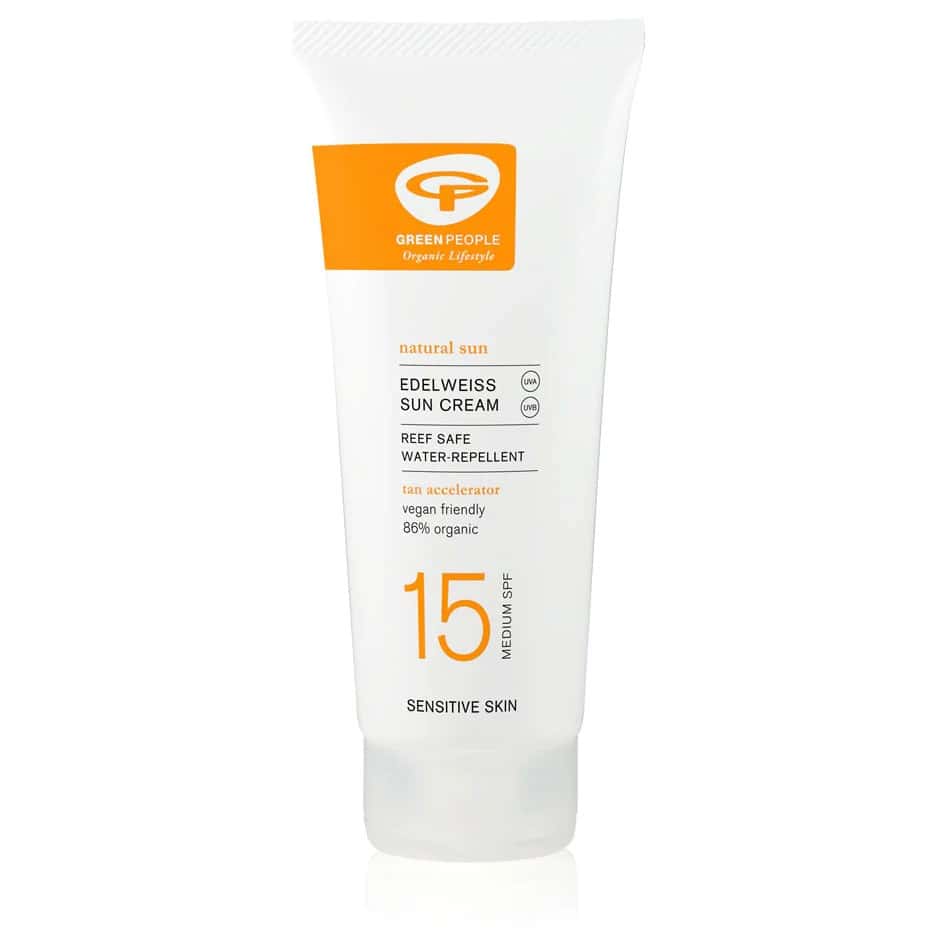
Green People SPF 15 Sunscreen
Update: the Green People SPF30 sunscreen is now vegan too!
Green People’s sunscreen only contains SPF 15, but it’s reef safe and they’re working with the Marine Conservation Society. It uses nano titanium dioxide, which is basically titanium dioxide shrunk down to smaller particles (so it’s less likely to leave a white cast), but some say it’s bad for reefs. However, Green People say they’ve coated their nano particles to make them nonreactive.
Looking for the best vegan face sunscreen? This sunscreen can be used as a cruelty free face sunscreen as well as body sunscreen, and is reportedly good for those with sensitive skin, so might be the best cruelty free face sunscreen if you need one for sensitive skin (although I’d recommend Purito unscented for sensative skin).
Plus, if you’re looking for a vegan suntan lotion, rather unusually this sunscreen contains a compound extracted from carob that is supposed to speed up natural tanning. Plus, most of the ingredients are certified organic.
This is the sunscreen I ended up selecting for my trip to the Canary Islands, as I felt it offered the best balance of a reef-friendly, eco-friendly sunscreen with price and since it seemed to be the best vegan sunscreen for the face. I did reapply it very frequently since the sun’s rays are so strong in the Canary Islands (I also tried to keep in the shade), and it was annoying having to reapply so frequently.
The main downside was the low SPF, but thankfully they’ve now made their SPF30 cream vegan too!
If you’re looking for a cruelty free sunscreen UK, Green People is a UK company (though you can also order it in the US), and I think it’s the best vegan sunscreen UK wide (and US wide).
Pros: reef safe; Green People is working with the Marine Conservation Society
Cons: uses nano titanium dioxide, which some say is harmful (though they say they coat theirs to make it safer for reefs)
Click here for more information.
Odylique sunscreen
This used to be rated SPF30 but as it no longer states an SPF, I’m concerned it doesn’t have one…
However, this is one of the few vegan, cruelty-free sunscreens to come in a glass jar with aluminium lid.
As far as cruelty free sunscreens go, this is as close to perfect I found in a sunscreen (apart from now no longer stating the SPF, which is a big one!). Cruelty free and completely ocean safe, this is the ONLY vegan sunscreen I could find that doesn’t seem to have anything that could cause problems to the reef.
he active ingredient in this vegan reef safe sunscreen is non nano zinc oxide, and that’s it! This broad spectrum reef safe vegan sunscreen is organic, fair trade, free from parabens, fragrances, silicones and all the potentially dangerous ingredients. The packaging is plastic made in Europe and is recyclable! Unfortunately it seems to be available only in the UK (sorry, US folks) and is currently out of stock. Hopefully it’ll be back in stock soon…
Best of: vegan sun cream UK
Pros: reef safe vegan natural sunscreen, fair trade, organic, parabens free, non nano zinc oxide (completely reef safe mineral sunscreen), recyclable packaging
Cons: no SPF stated!, only available in the UK
Click here for more information.
Best for: best vegan sunscreen for face, vegan sunscreen SPF 50
Purito’s sunblock is an unscented, reef-safe vegan sunscreen from Korean skincare brand Purito.
The great thing about this vegan Korean sunscreen is it’s SPF 50 and offers broad spectrum protection.
I used to use Purito’s Comfy Water sunblock before it was discontinued. I found it extremely comfortable, just like the name says. To me, it’s some of the best vegan SPF for face care.
You know that feeling sunscreen sometimes gives where it feels like your skin is trapped under a shield? Or is that just me? Purito never made me feel that. It melts into my skin and then I don’t feel it at all.
However, it likely depends on your skin type as I’ve heard others (those with drier skin) say it didn’t work for them.
Unfortunately, it was discontinued and Purito became subject to a scandal when it was shown that their Centrella SPF 50 sunscreen actually was only an SPF19 in lab tests. (However, I’ve since read that lab tests of sunscreen are fraught with room for error and most sunscreens don’t have the same SPF as advertised when tested in a lab.) Whilst it may have had a lower SPF than advertised, I never burned in the years I used it (I did reapply frequently when out in the sun).
The sunscreen is a chemical sunscreen.
Kri tinted mineral face vegan sunscreen (face), SPF30
This vegan tinted sunscreen is what I currently use every day. It ticks all the boxes and is the closest to perfect I’ve found at the moment:
- Vegan, cruelty-free company
- Mineral-based sunscreen (non-nano zinc oxide), reef safe
- Comes in a glass jar (though it has a plastic pump)
- Tinted to avoid the dreaded white cast
As a longtime adherent to a vegan lifestyle, I like supporting companies that make entirely vegan and cruelty-free products, like Kri. I also love that this sunscreen comes in a glass jar (though it’s a shame to have a non-recyclable plastic pump, but that’s a relatively small one).
I tend to try to use physical sunscreens where possible, just to be sure they’re reef safe (even though there’s not yet a scientific consensus on what is), and this ticks that box as the sunscreen is based on non-nano zinc oxide. Zinc oxide offers full spectrum protection (unlike titanium dioxide, the other physical sunscreen ingredient). It’s tinted, so I don’t have to worry about a white cast (I use the T3 shade). I do wish they made a broader range of colours as they don’t have any colours for dark skin tones.
I use this daily, after the Kri vitamin C serum, as research shows combining vitamin C and sunscreen offers even more effective sun protection.
Click here for more information.
What is vegan sunscreen? What makes sunscreen vegan or not?
Is sunscreen vegan? Like other body care products, sunscreen can contain animal products or be tested on animals. All natural sunscreen could be tested on animals (or contain non vegan ingredients), while cruelty free suncream isn’t tested on animals but could contain animal products like beeswax.
Remember, just because a product says ‘natural organic sunscreen’ or ‘paraben free sunscreen’ doesn’t mean it’s free of animal ingredients. Vegan sun screen is both free of animal ingredients and hasn’t been tested on animals.
The products in this guide are all vegan — free of animal products and cruelty-free (not tested on animals).
Another complicating factor is that some beauty brands may not engage in animal testing in the US or Europe (in fact, it’s illegal to test cosmetics on animals in the EU) but if they sell products in China, they’re obligated to test on animals in order to sell on the Chinese market. Because of this, most consider these products not to be vegan.
Then, there’s the consideration of what parent company owns the brand in question. While the brand you’re looking at may not test on animals, many smaller brands are owned by larger parent companies, who may have a poor record on animal testing or other ethical considerations.
Below, I’ve tried to find the best cruelty-free and vegan products (with an emphasis on smaller independent brands). Whether you’re planning spring break or packing for a road trip, make sure to pack your vegan, cruelty free sunscreen.
What’s eco friendly sunscreen?
Another aspect of sunscreen you may not have considered is whether it’s an environmental sunscreen. A sunscreen can be a vegan but not eco sunscreen, but since it impacts the earth many vegans are also concerned about ensuring they buy non toxic sunscreen that’s also vegan. This means it won’t harm the environment (particularly the sea) as it comes off your body into the natural world, which is impossible to avoid especially when swimming.
If you’re going to be snorkeling, scuba diving or swimming in the ocean, look for a reef- and ocean-friendly sunscreen.
Look for the best biodegradable sunscreen, meaning it will break down. And if you’ll be in the water, make sure your sunscreen is water resistant.
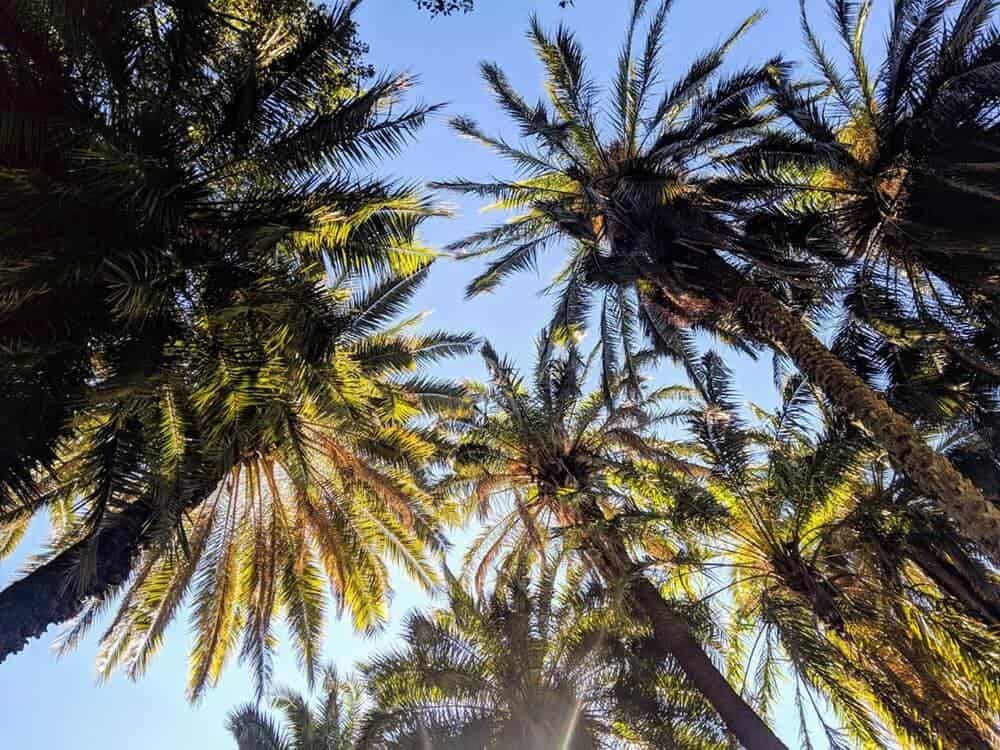
Learning the lingo: UVA, UVB, chemical vs mineral and more
- UVA: The sun’s rays are divided into two types: UVA and UVB. Most of the rays you’re exposed to are UVA (and UVA can penetrate glass). For skin cancer protection, you need a sunscreen that protects from both. Look for ‘broad spectrum SPF sunscreens’ in the US, which mean they protect both UVA and UVB. In the UK, look for the star rating for UVA protection; the rating is between 0 and 5 with 5 being the highest. This actually shows the ratio of UVA to UVB protection.
- UVB: UVB rays are responsible for sunburn, and sunscreens were originally developed to protect from UVB. SPF ratings rate the UVB protection.
- SPF: SPF stands for sun protection factor and describes how much longer you can stay in the sun without getting a sunburn; for example, if you’d burn within 10 minutes of being in the sun, an SPF of 15 will allow you to stay in the sun 150 minutes (15 times longer).
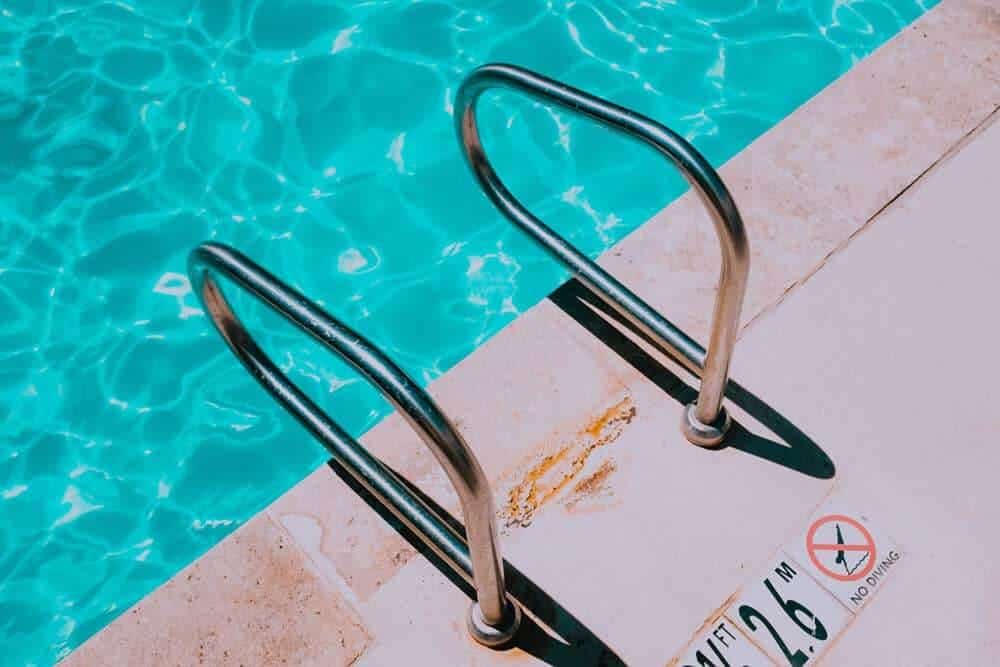
- Chemical sunscreen: chemical sunscreen ‘absorbs’ the sun’s rays like a sponge, using one its active ingredients (one of the following: oxybenzone, avobenzone, octinoxate, homosalate, octisalate or octocrylene). There has been a lot of concerns over the damage some chemical sunscreens are causing to the ocean, in particular coral reefs, leading Hawaii and other places to ban it.
- Physical (mineral) sunscreen: physical aka mineral sunscreen, on the other hands, uses zinc oxide or titanium dioxide to ‘reflect’ the sun’s rays back, like a mirror. Those with sensitive skin often report physical sunscreen is less likely to cause a skin problem.
- Non nano sunscreen: these days, improvements in nanotechnology have allowed sunscreen manufacturers to make physical sunscreen with nanoparticles, which are much smaller and therefore don’t leave the ‘white cast’ of old-school zinc oxide (have you ever seen an old photo of someone with a streak of white on their nose?). Unfortunately, there’s concern that these nano particles are potentially damaging to marine life, and some think they may be bad for humans too (although there’s no evidence for the latter). The best non nano sunscreen is made with zinc oxide or titanium dioxide and is not harmful to ocean life.
- Vegan sun cream: vegan friendly sunscreen is made without animal products, and not tested on animals.
- Cruelty free sunscreen: cruelty free sunblock isn’t tested on animals, but may contain animal ingredients, so check if it’s vegan.
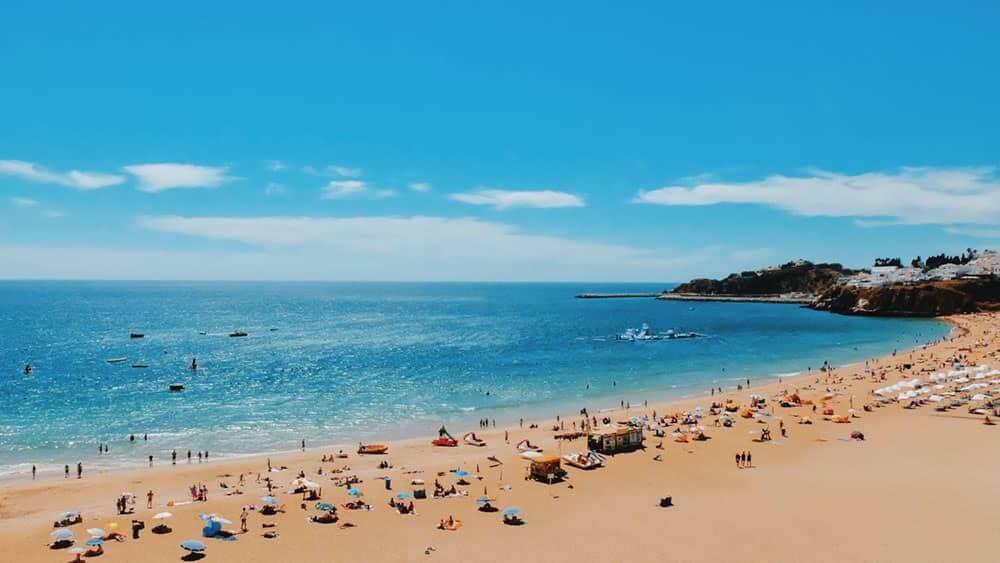
- Healthy sunscreen: the term ‘healthy’ isn’t regulated, so it’s best to check ingredients and read reviews.
- Natural sunscreen: again, the term isn’t regulated, so ‘natural’ sunscreen brands can include whatever ingredients they want. Always check ingredients.
- Organic sunscreen: organic is a word that gets thrown around a lot, but I’m not sure what it would mean in terms of sunscreen as I don’t think you can have *organic* titanium dioxide. However, the other ingredients in sunscreen could be organically grown, which is better for biodiversity. The best organic sunscreen should still be environmentally friendly in other ways, e.g. ocean safe.
- Unscented sunscreen: Some people with sensitive skin find the scents used in most sunscreens cause flare ups. The best unscented sunscreen, therefore, won’t cause any breakouts or bumps.

- Paraben free sunscreen: parabens cause environmental concern as it’s believed they’re contributing to damage to coral reefs. Therefore, you should choose one without. The best paraben free sunscreen is also physical and therefore reef safe.
- Eco friendly sunblock: Eco friendly sunblock should be ocean and reef safe. Choose a physical sunscreen that’s parabens free.
- Biodegradable sunscreen: many aquatic nature parks and tours require biodegradable sunscreen, meaning suncreen that breaks down harmlessly in the environment, but it can be hard to determine if this is true. That’s why it’s important to look at the ingredients in the sunscreen.
- Reef safe sunereen: avoid sunscreens containing oxybenzone and octinoxate (which were recently banned in Hawaii and believed to cause coral bleaching), high concentrations of titanium dioxide, and sunscreens containing parabens or petrolatum/mineral oil.
- Zero waste sunscreen: finding sunscreen that comes without plastic packaging is even trickier. I haven’t found any that are vegan (please email me the link if you know of one!), although the internet is full of recipes to make your own (Google and ye shall find recipes), if you can find zinc oxide in bulk somehow…
- Vegan moisturizer with SPF: what about moisturizer? Well, even the best cruelty free moisturiser with SPF doesn’t necessarily work as well as sunscreen, depending on how it’s applied. Very few people apply moisturiser in the quantity needed to protect skin (although the same can be said of sunscreen–apparently you need more than you think!), and tend not to reapply frequently throughout the day like you should with sunscreen. However, if you do select the best vegan moisturizer with SPF for your needs, you can use it, just be sure you apply plenty and reapply frequently.
Sources: British Association of Dermatologists, American Academy of Dermatology, National Geographic on Nanotechnology, National Geographic on Sunscreens, Sierra Club, Hawaii’s Guide to Reef Safe Sunscreens
Pin this for later
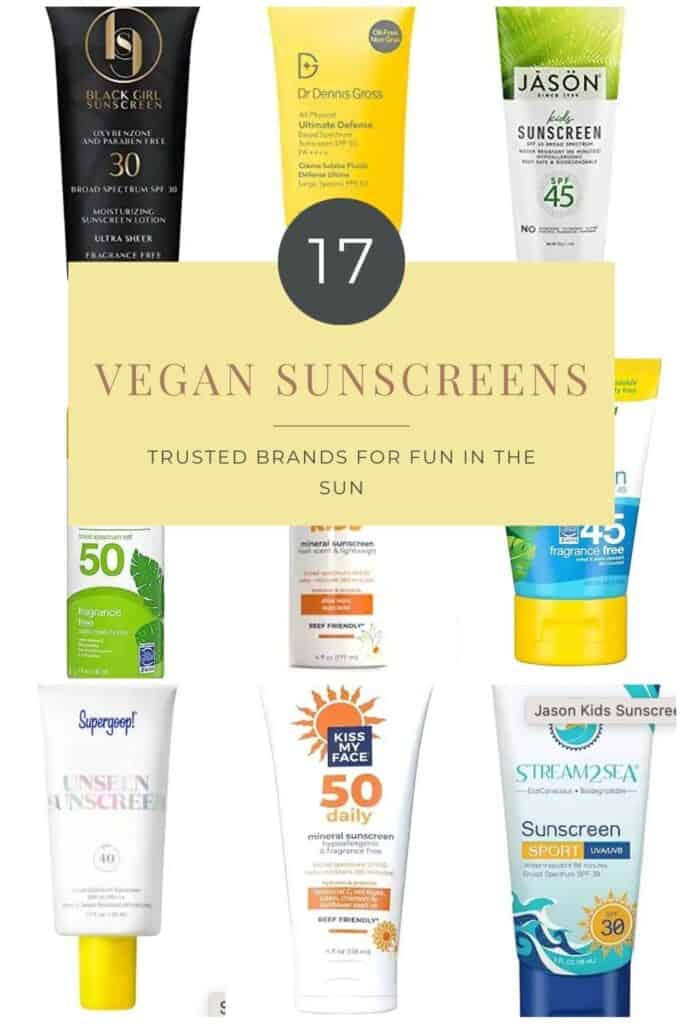
Now you know where to get cruelty-free sunscreen, pack it along with the rest of your stuff in a vegan suitcase! Click here to read my guide to the best vegan suitcases, duffel bags and backpacks for travel.
Don’t forget to pack your vegan sneakers for walking and your vegan deodorant too! Find my vegan deodorant buying guide here.
Find more vegan travel product buying guides and tips here, and learn all about vegan travel here.

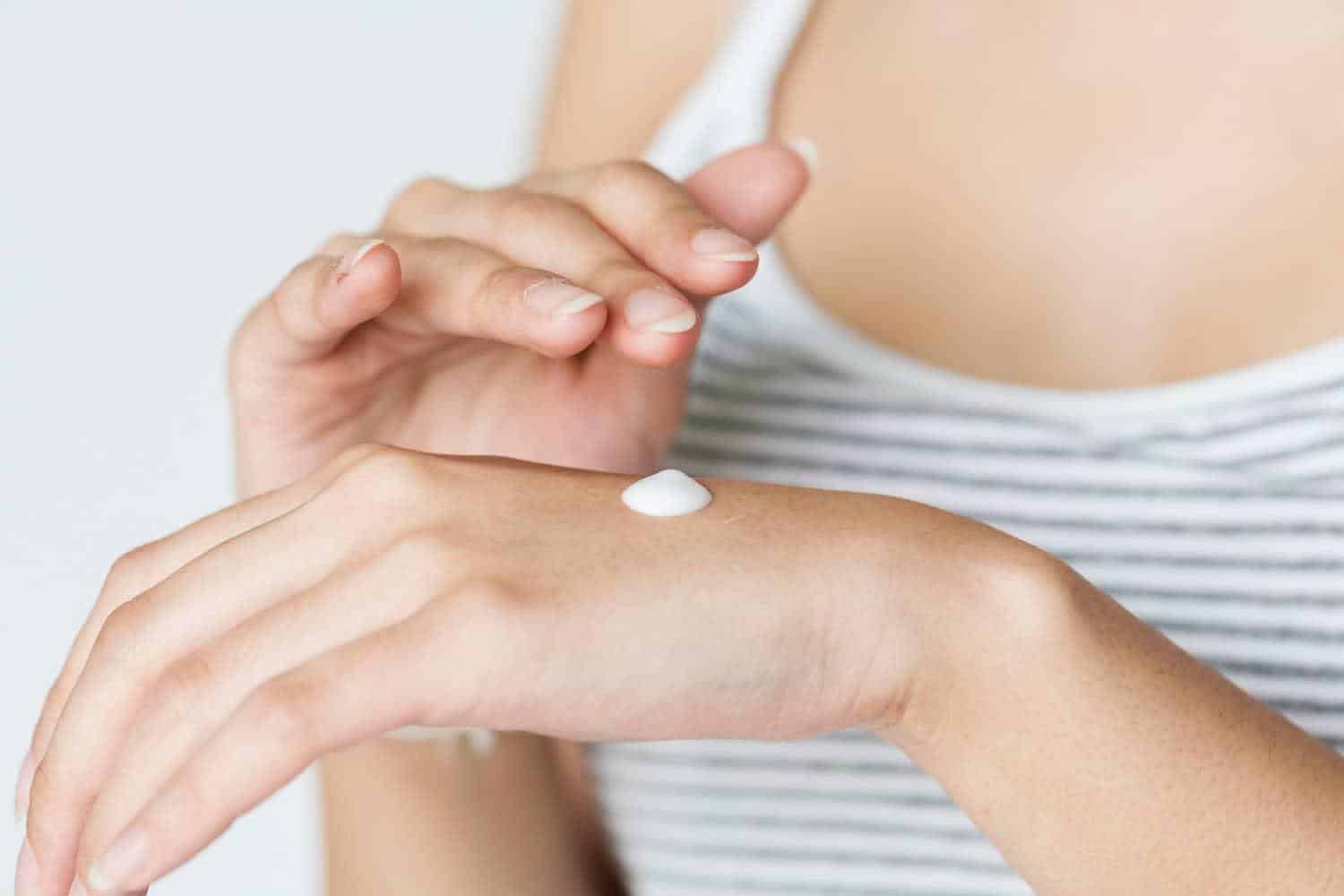
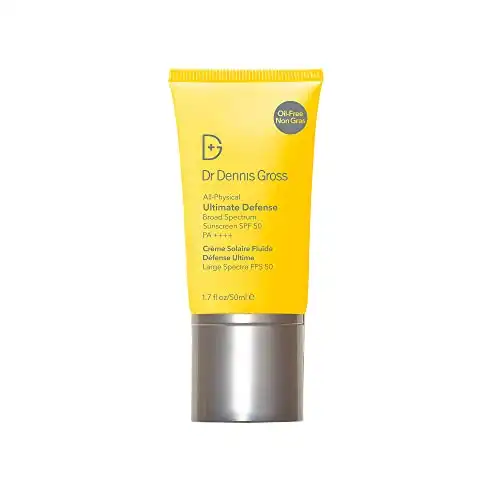
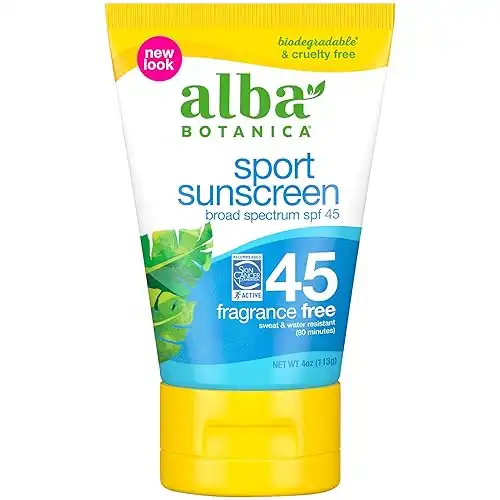
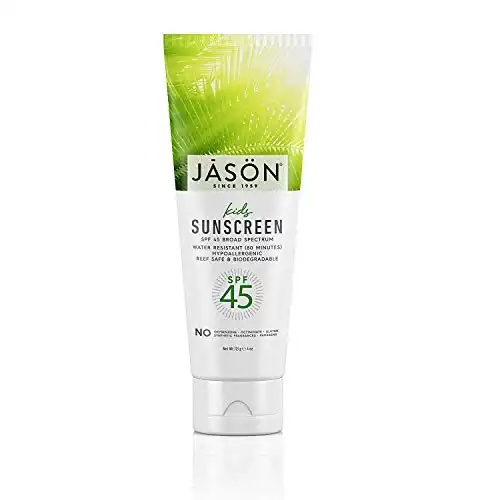
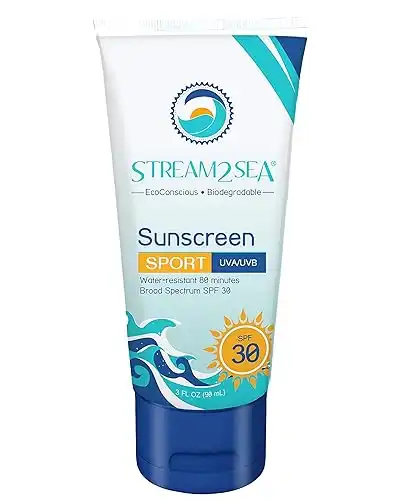
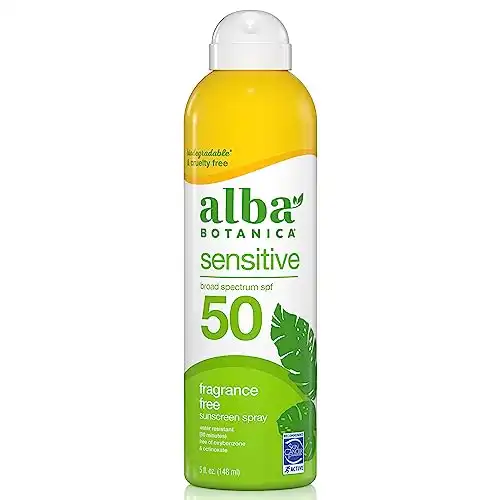
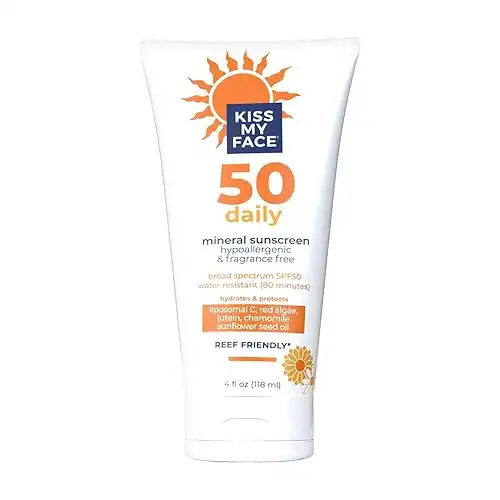
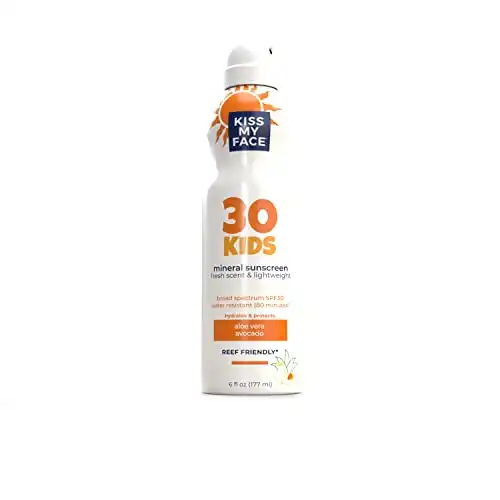
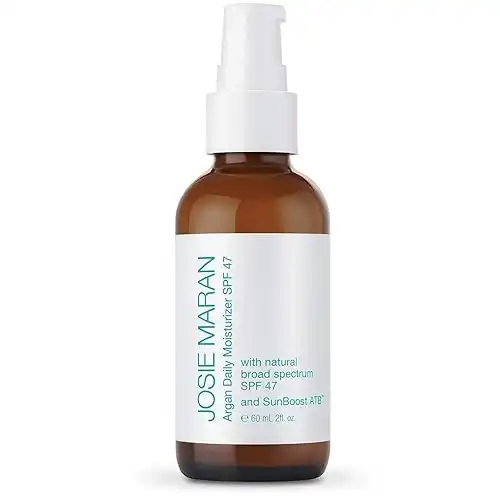
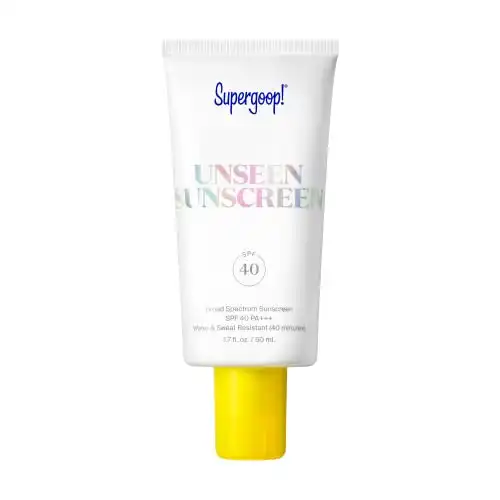
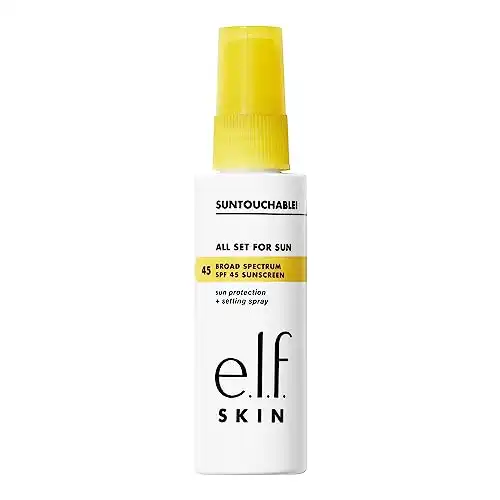
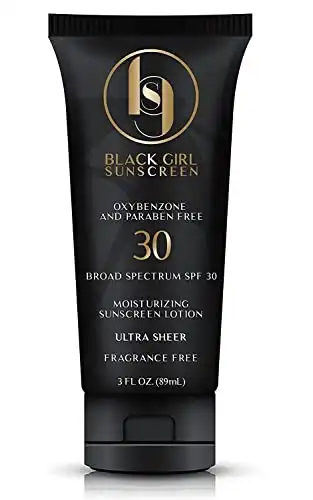

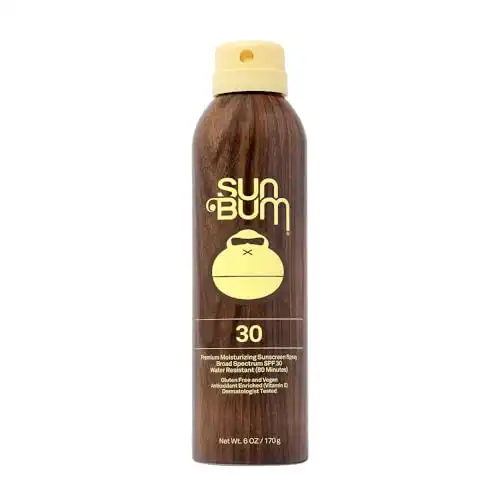
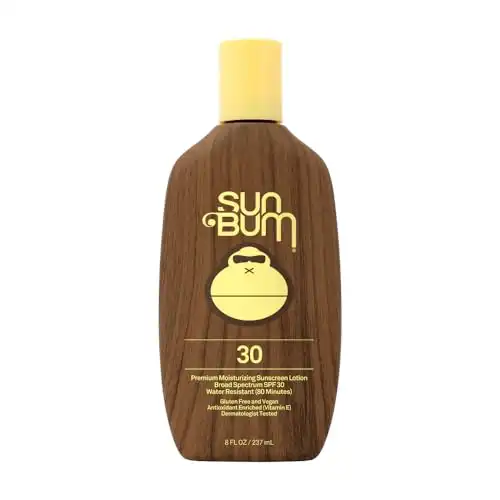
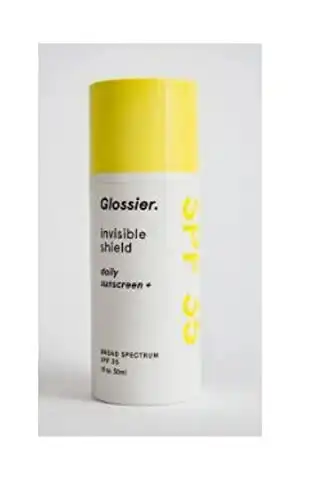
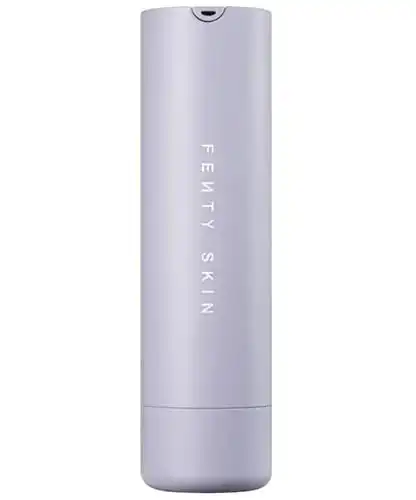
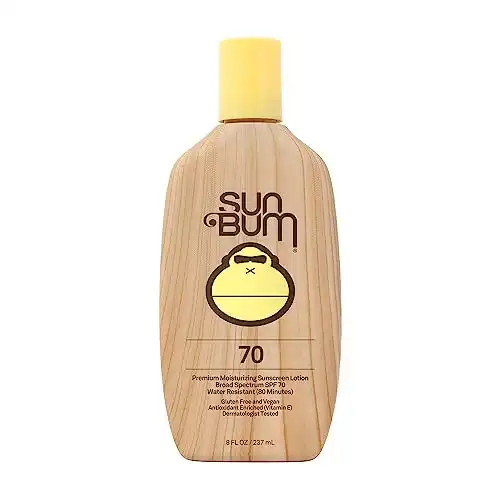
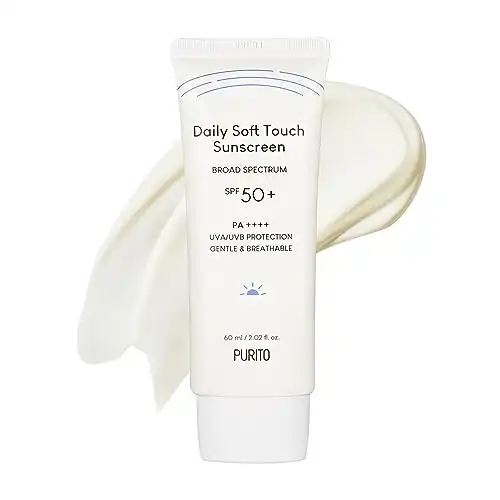
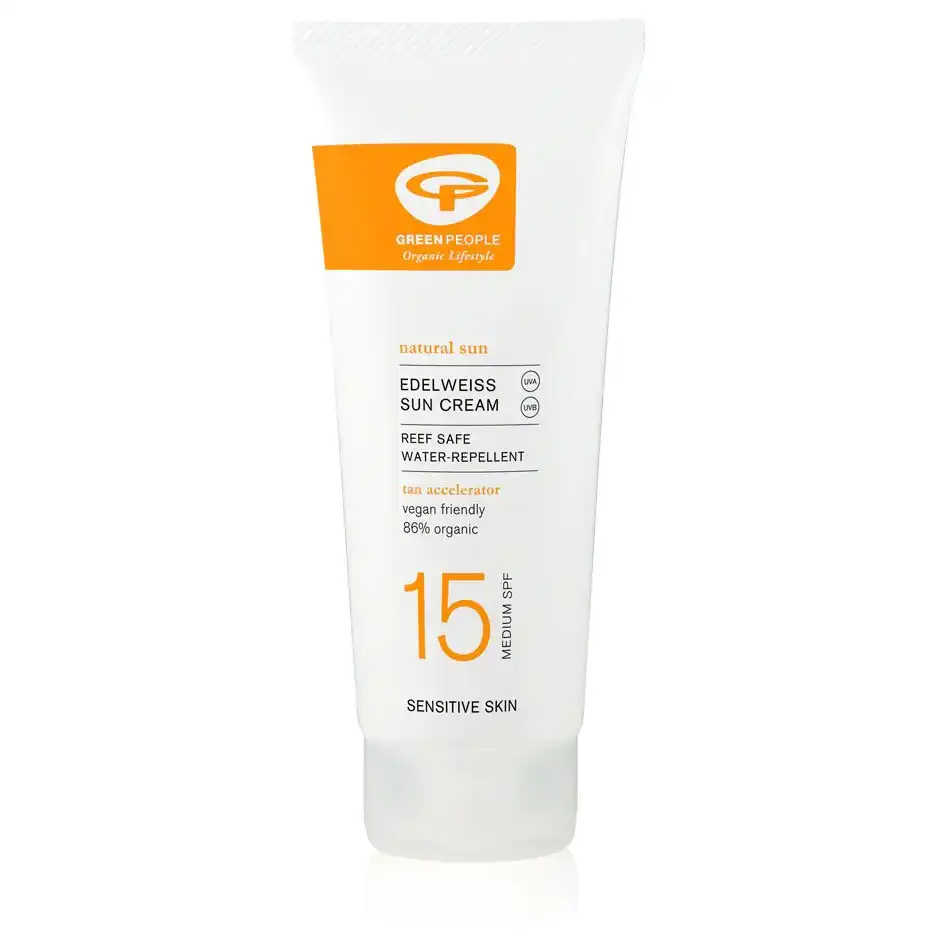
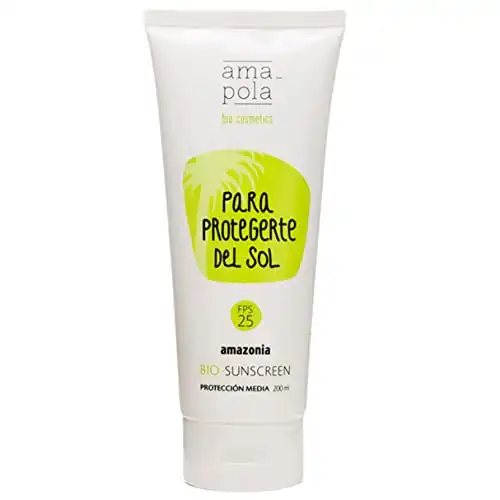
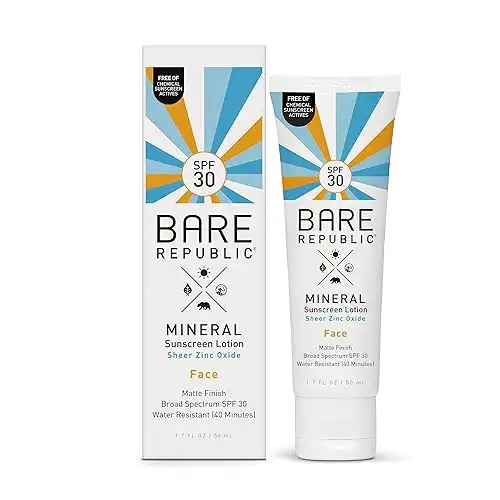



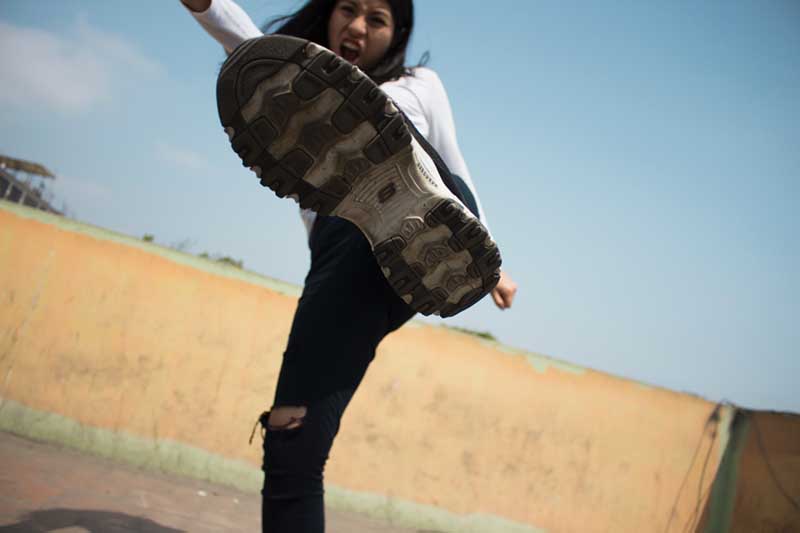






7 thoughts on “The Best Vegan Sunscreen: A Cruelty-Free Buying Guide”
This is really useful stuff. Sadly, I haven’t got any sunny holidays planned, but buying the right sunscreen has been one of those things that’s always on my mind when I do. I didn’t know that octocrylene was bad for reefs, so I’ve learnt something new, but I knew not all sunscreens were great for the environment. Thanks for helping me pick more wisely next time I”m sunscreen shopping!
Thanks Joey, so glad it was helpful! I learned so much while researching sunscreen before my trip — I also had heard some susncreens were bad for the environment but didn’t know about specific ingredients like octocrylene. Good to know what to watch out for!
I bought green people sunscreen last year & honestly am so unimpressed by it. Difficult to apply, smells bad & attracted flies in Australia, plus very expensive. I ended up using Banana Boat in Australia (vegan, but not reef safe), they have a ‘dry & balance’ version which is good for me as I have oily skin on my face. The aerosol/spray system they have is also great & it’s easily available in shops. Also spf 50 like most suncreams there.. I also got Le Tan suncream as a vegan & reef safe option for when needed in Oz. Much cheaper & smells way better than green people. Back in the UK I’ve bought Superdrug spray (vegan, not reef safe). It’s ok but has a yellow tinge that rubs off on white clothes, is oily, leaky & not great spray system. The Aussie suncreams are so much better. Although it’s expensive to buy them internationally & ship them to the UK, it’s probably still cheaper than buying green people suncream here.
Emma, thanks for the tips on the Aussie suncreams! I guess it’s a matter of personal preference — the Green People one smells fine to me and also goes on fine! Not nice if it attracts flies though — I’ve only used it in Europe and haven’t had experiences with flies but there aren’t as many. Had the same problem with Superdrug one staining things yellow.
You completely failed to state whether any of the products were scented or unscented. For me that is extremely important because i detest scented products.
Hi! After lot’s of research I found a vegan, waste-free sunscreen! I still have to try it out myself so can’t say a lot more about it than that but it’s called Nature Body
Wow, you found the holy grail of sunscreen!! Thank you for sharing – I’ll try it next summer! :)